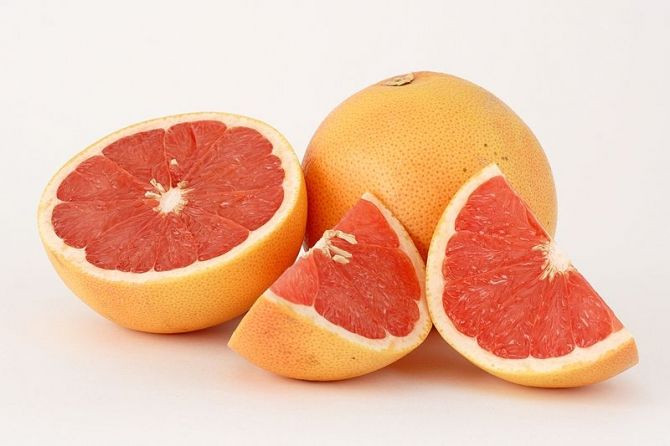Grapefruit Plus Medicine Can Be Dangerous, Researchers Say

Grapefruit juice when taken along with certain medication lowers body's ability to break down the medicine, causing a medication overdose that can lead to kidney damage or even death, says new study from Canada.
Drugs that shouldn't be taken with grapefruit juice include some common cholesterol lowering drugs like statins, calcium channel blockers and antibiotics. Others include cancer-fighting drugs and immune system suppressing drugs.
The research team from Lawson Health Research Institute in Canada reported that the number of drugs which have serious side effects when taken with grapefruit have risen from 17 in 2008 to 43 in 2012.
"One tablet with a glass of grapefruit juice can be like taking five or 10 tablets with a glass of water and people say I don't believe it, but I can show you that scientifically it is sound," Dr David Bailey, one of the researchers, told the BBC. "So you can unintentionally go from a therapeutic level to a toxic level just by consuming grapefruit juice."
A chemical known as furanocoumarins, present in the grapefruit juice inhibits the action of an enzyme in the body that breaks down the drug, meaning that the drug escapes the digestive system. Side effects of using grapefruit juice along with medication depend on the drug type. However, common symptoms include kidney damage, changes in heart-beat, stomach bleeds and in certain cases, death.
A study funded by National Institute of Health had previously found that an enzyme present in the intestine called CYP3A4 is the juice's target.
Other fruits that can cause such side effects include seville oranges, often used in marmalade, and limes.
"Grapefruit isn't the only food that can cause issues, for example milk can stop the absorption of some antibiotics if taken at the same time," Neal Patel, from the Royal Pharmaceutical Society told BBC. "Although some of these interactions may not be clinically significant, some may lead to more serious outcomes."
Patel added that people who are concerned about the effects of the diet on the medication can talk about it to their pharmacists. Information about any drug interaction is always printed on the leaflet that comes with the medicine.
The study was published in the Canadian Medical Association Journal.



























